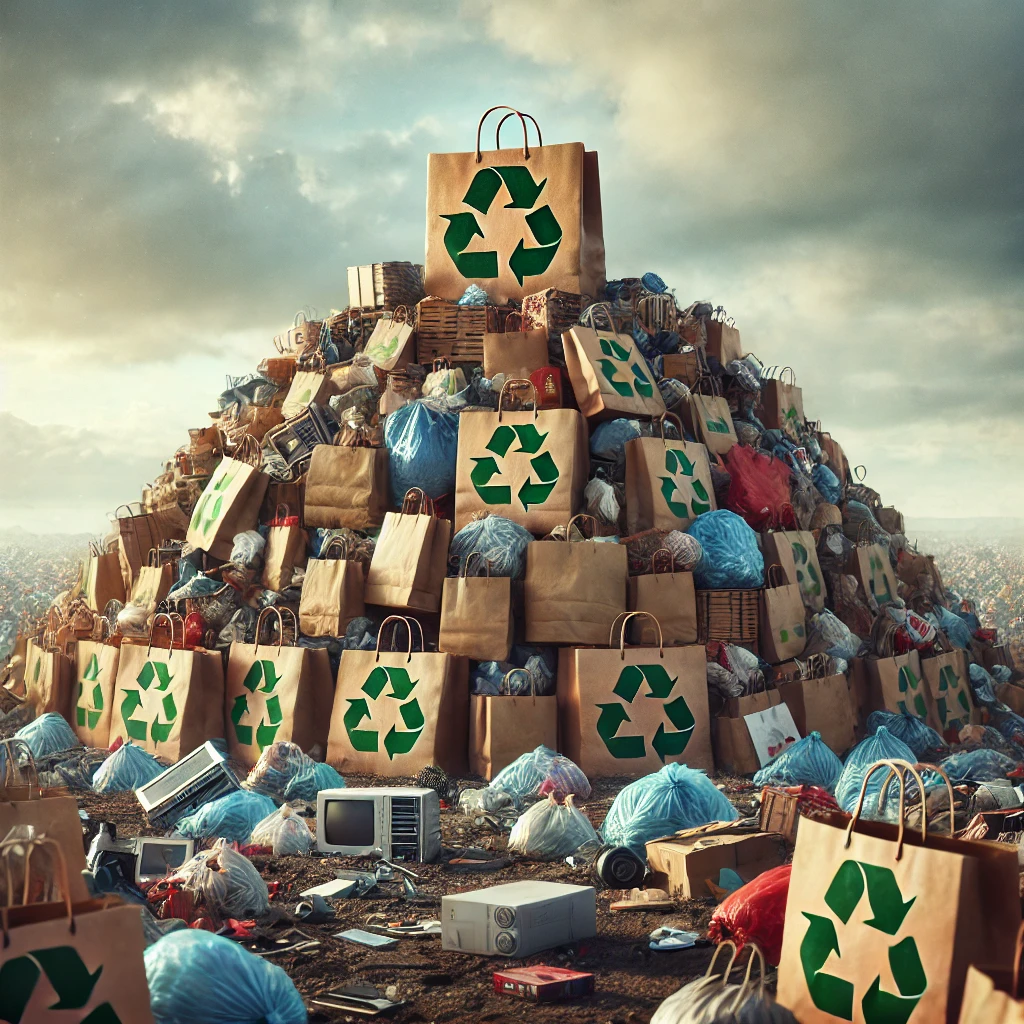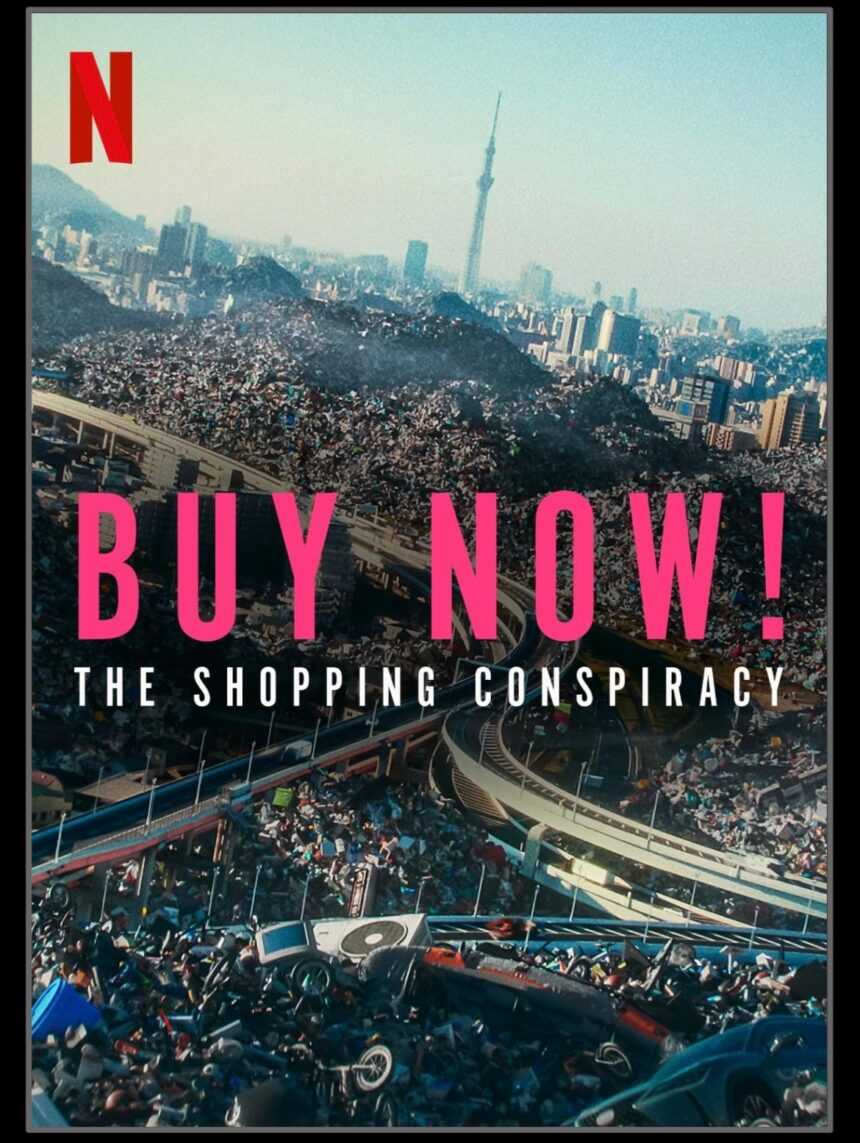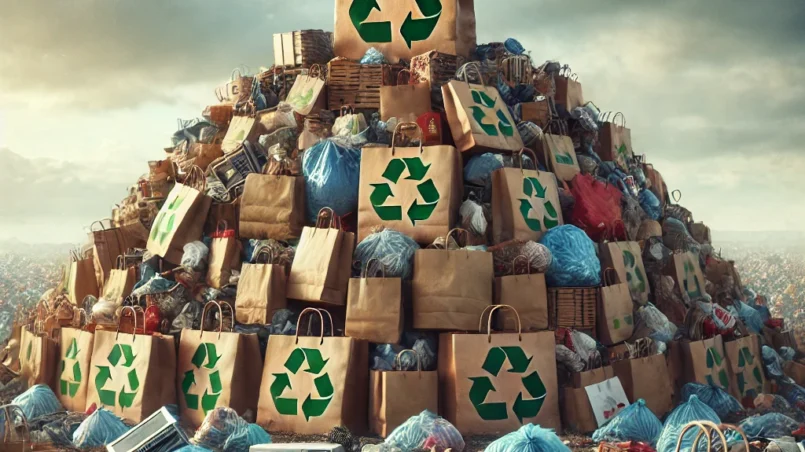Every so often, a movie comes along that completely rewires how I think. Films like The Game Changers convinced me to try veganism—I still haven’t eaten meat since watching it! The Whale made me better understand morbid obesity, making me less judgmental of those with the disease. And now, Buy Now: The Shopping Conspiracy, a new Netflix documentary, forced me to reconsider my shopping habits, and I hope it will convince others to do the same.
Buy Now: Consumerism in the 2020s

Buy Now is a modern An Inconvenient Truth—updated for a generation grappling with fast fashion and the convenience of next-day delivery. The documentary paints a grim but all-too-real picture of how consumerism has snowballed in the age of online shopping. Companies like Shein, Temu, Alibaba, and Amazon have made buying cheap, disposable items at breakneck speed easier than ever, and the consequences are staggering.
Overconsumption is quietly devastating our planet, fueled by corporations that pour billions into marketing strategies designed to make us buy more than we’ll ever need. Profits have always taken precedence over sustainability, but the price isn’t just financial—it’s environmental, and we’re all footing the bill. The harsh reality is that the consequences fall hardest on the world’s most vulnerable communities, where the impact of our choices is impossible to ignore. Both corporations and consumers need to rethink their habits if we hope to preserve the planet for future generations.
Buy Now: The Recycling Myth
Where An Inconvenient Truth may have misstepped, Buy Now doesn’t shy away from uncomfortable realities. Once touted as a key solution, recycling has largely failed. Most items labeled as “recyclable” either aren’t or never actually make it through the recycling process. Instead, they’re shipped overseas, buried, or burned, creating further environmental harm.
Worse yet, many companies perpetuate the myth of recyclability to assuage consumer guilt, allowing the cycle of overconsumption to continue unchecked.
Style vs. Substance

While I appreciate the movie’s substance, I felt that some stylistic choices made it annoying at times. My biggest critique lies with the decision to use an AI-like voice as a quasi-narrator. While creative, it often felt like overkill, breaking the fourth wall when the content was compelling enough to stand alone. Sometimes, less is more; in this case, the overuse of flashy graphics and supercharged TikTok-style imagery detracts from the weight of the subject matter. I kept wishing for a little more restraint—a documentary that trusted its audience to absorb the message without all the visual pyrotechnics.
That said, the interviews are the film’s backbone and do not disappoint. The people featured include former top executives and employees at Amazon, Adidas, and Apple, who are deeply knowledgeable and undeniably credible, offering a sharp, sobering analysis of consumerism’s environmental toll.
The Hard Truth and the Way Forward
So, what’s the solution? The film doesn’t pretend it’s easy, but it does emphasize the importance of rethinking our habits—especially as we approach the biggest shopping week of the year.
Before making that next purchase, consider: Do you truly need this, or is it just a fleeting desire? Many of us fall victim to buying things we don’t need or use, driven by marketing, convenience, and social pressure. I know I’ve fallen into this trap many times. You may have felt the same walking into your closet and seeing clothes you’ve never worn or cheap gadgets of yesteryear.
The better approach? Prioritize high-quality, durable items that stand the test of time over cheap, disposable goods that end up in landfills within months. Additionally, we must focus on fixing what we have rather than always running to replace it. Companies also need to build higher quality products that don’t need to be replaced as often. This may seem counterintuitive to their financial bottom line, and as an MBA, I can tell you business is almost always about the bottom line. However, bigger than money, and more importantly than money, is keeping the environment safe and healthy for all of its inhabitants. Prioritizing health and safety is a net positive for the planet and its billions of shareholders. It may not feel that way in the short term, but in this case, it’s important to think about the long game. By making intentional choices about what we buy, how we buy, and what we reuse, we can begin to chip away at the cycle of overconsumption.
Buy Now: A Sobering Reminder
Everybody wants to believe the company they work for isn’t part of the problem. But as Buy Now reminds us, the solution requires more than just wishful thinking. It demands real action—from corporations, yes, but also from each of us.
Like in politics, we have the opportunity to demand change. First and foremost, we need to pay attention to what we are doing. The best thing is to stop buying as many things as we don’t need. We should be intentional about our shopping habits and realize that cheap things have an expensive impact.
As you shop this season, consider buying less. It will certainly save you money, but it may also save the planet.
All the best,
Ariel
For more movie and TV show reviews, check out The Joneses here, and Normal People here.

